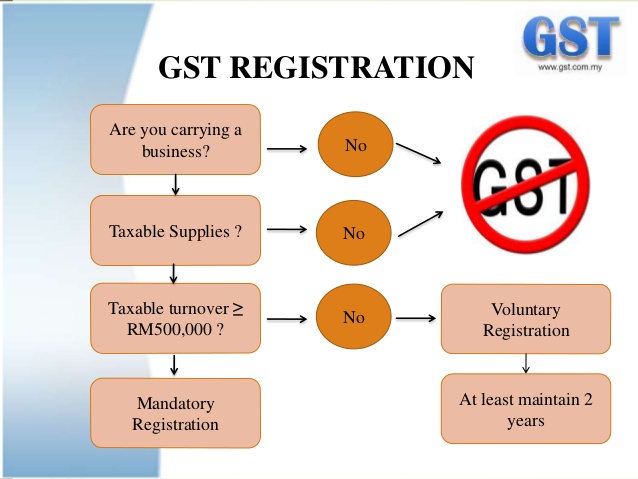Step-by-Step Refine for Singapore GST Registration Explained
Step-by-Step Refine for Singapore GST Registration Explained
Blog Article
Making Best Use Of Tax Obligation Performance: Professional Tips on Navigating the GST Enrollment Puzzle for Tiny Organizations
Browsing the elaborate landscape of Goods and Services Tax Obligation (GST) enrollment can be a labyrinthine task for small companies aiming to optimize their tax obligation efficiency. Understanding the eligibility criteria, thorough paperwork demands, tactical timing considerations, and adept enrollment procedure tips can significantly impact a firm's economic standing. Compliance with GST guidelines is critical, and sticking to finest practices can simplify operations and avoid potential risks. In this discussion, we will certainly check out expert understandings and workable advice that can encourage small companies to browse the GST enrollment maze successfully and optimize their tax obligation performance.
Eligibility Requirements
Qualification demands for Local business GST Registration include certain criteria that services must satisfy to conform with tax obligation laws. To receive GST registration, a business should have an annual turn over going beyond the threshold set by the tax obligation authorities, which varies by country. Additionally, companies entailed in inter-state supply of solutions or goods, or those selling products online, may be required to sign up for GST, irrespective of their turn over. It is vital for organizations to properly establish their qualification based upon these turn over limits to stay clear of fines for non-compliance. Singapore GST Registration.

Documents Demands
To successfully complete the procedure of GST enrollment, small companies need to ensure they have all needed paperwork in order. The called for documentation usually includes evidence of service registration or consolidation, identity and address evidence of the company proprietor, photos, bank account information, and evidence of the primary area of organization. In addition, companies require to provide information of their business tasks, including the products or solutions provided. It is vital to guarantee that all records are accurate, as much as day, and in the specified layout to stop delays or beings rejected throughout the enrollment process.
In addition to the necessary papers, organizations might also be required to submit additional information based on their specific situations. This can consist of records connected to collaborations, the consent of signatories, or any other appropriate contracts. Keeping all required documents organized and conveniently accessible can simplify the enrollment process and assistance services adhere to the demands efficiently - Singapore GST Registration. Failing to give the called for paperwork may result in hold-ups or perhaps view website being rejected of the GST registration application. Consequently, careful interest to detail and adherence to the documents guidelines are important for a successful GST registration procedure for small companies.
Timing Considerations
Taking into consideration the vital paperwork demands have been carefully addressed, the following important aspect for tiny companies starting the GST registration procedure is the strategic administration of timing factors to consider. Timing plays a pivotal function in GST enrollment, affecting not just compliance however likewise economic aspects of business. Tiny businesses require to carefully plan the timing of their GST enrollment to take full advantage of advantages and reduce possible threats.

In addition, organizations need to straighten the timing of their GST registration with their operational readiness. Adequate prep work, such as upgrading accountancy systems and training personnel, is vital to seamlessly incorporate GST needs into daily operations. By tactically handling timing factors to consider, small companies can navigate the GST registration procedure successfully and enhance their tax efficiency.
Enrollment Process Tips
Effectively browsing the GST registration procedure calls for small organizations to carry out tactical and aggressive enrollment process suggestions. This consists of company enrollment records, proof of address, bank declarations, and recognition proofs of the service proprietors.
Additionally, comprehending the limits and needs for GST enrollment based on the particular state or region where business operates is necessary. Some states have various turn over thresholds that activate obligatory registration, so being notified regarding these limits can assist businesses plan ahead.
One more important tip is to consider seeking professional help from accounting professionals or tax experts who focus on GST registration. Their proficiency can improve the process, decrease errors, and make sure conformity with all guidelines.
Conformity Finest Practices
Small services must prioritize compliance to stay clear of penalties and preserve a great standing with tax obligation authorities. Tiny company basics owners should this post regularly evaluate government standards and look for specialist advice if needed to guarantee they are fulfilling all needs. By incorporating these compliance best methods right into their procedures, small businesses can navigate the complexities of GST registration with confidence and performance.
Final Thought
To conclude, local business can navigate the GST registration puzzle by guaranteeing they meet eligibility criteria, collect called for documents, take into consideration timing ramifications, comply with registration process suggestions, and adhere to compliance best methods. By taking full advantage of tax performance via correct GST registration, businesses can enhance their monetary administration and operations.
Browsing the complex landscape of Product and Services Tax (GST) enrollment can be a labyrinthine job for little companies aiming to optimize their tax obligation performance.Eligibility requirements for Small Business GST Enrollment include particular criteria that companies must fulfill to conform with tax laws. The needed documentation typically consists of evidence of company enrollment or unification, identity and address proofs of the organization owner, pictures, bank account information, and proof of the major location of business. Furthermore, companies require to offer information of their company tasks, including the items or services supplied.Effectively navigating the GST enrollment procedure requires little businesses to execute strategic and aggressive enrollment process suggestions.
Report this page